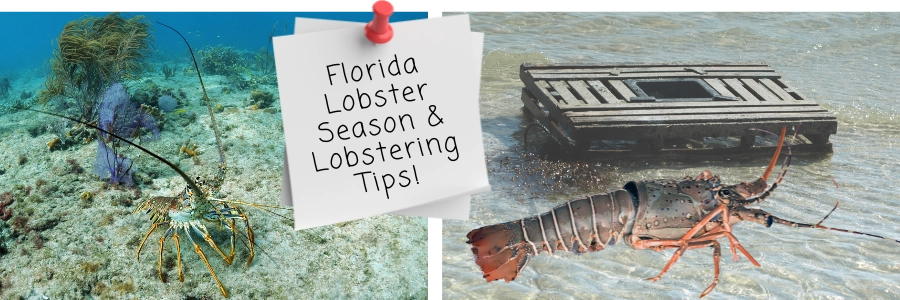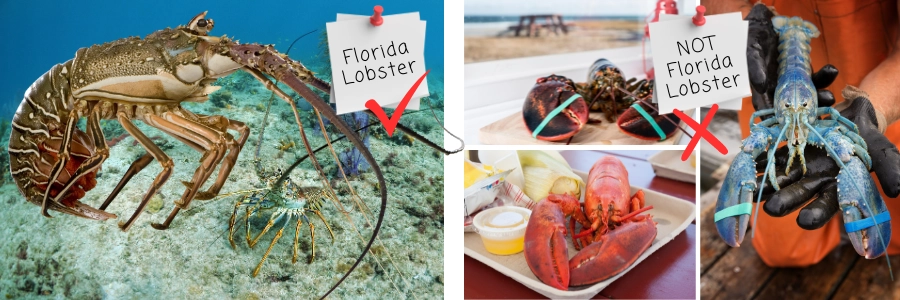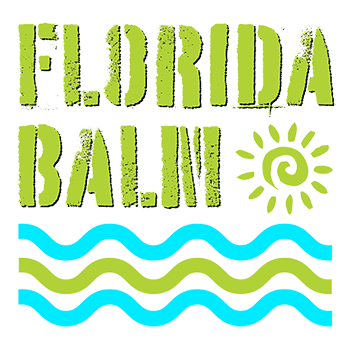
Florida Lobster Season for Beginners
Florida lobster season is a highly anticipated event for both residents and visitors alike. With its clear waters and abundant marine life, the Sunshine State offers unparalleled opportunities for lobster hunting.
This type of lobster is generally found in shallow reefs, rock formations and shallow waters. While there are specific gear that makes lobstering a lot easier and more effective, it’s possible to free dive and net or grab lobster with a good pair of gloves.
Recognizing the importance of protecting the lobster population from overfishing, there are state and local restrictions plus a saltwater fishing license and lobstering permit required. Here’s all the information you need to get started:

Florida Lobster Season 2025: August 6th to March 31st
Florida Lobster Mini Season
The Florida Lobster Mini Season is a highly anticipated two-day event that takes place on the last consecutive Wednesday and Thursday of July (2025 is July 30-31).
This intense period is a frenzy of activity for lobster enthusiasts, as they race against the clock to catch their limit.
Key differences between Mini Season and Regular Season:
- Duration: Mini Season is a brief two-day period, while the Regular Season spans from August 6th to March 31st.
- Intensity: Mini Season is characterized by a high level of competition among lobster hunters with more restrictions than regular season, while the Regular Season is generally more relaxed.
- Regulations: Both seasons have specific regulations regarding size limits, bag limits, and gear restrictions. It’s crucial to familiarize yourself with these rules before heading out.
Make sure to check the FWC regulations and laws, as well as local restrictions. Example: during Lobster Mini Season, Monroe County (Florida Keys) prohibits night diving for lobster and limited to only 6 per person.
For specific information and obtaining the required fishing license check the official FWC website here.

What are Florida Spiny Lobster?
Florida’s waters are home to the delicious spiny lobster, a crustacean prized for its sweet and tender meat. Unlike the Maine lobster, which has large claws, the spiny lobster has a smooth shell and long antennae.
While spiny lobsters are abundant in Florida, they are not the only lobster species found in the state. However, they are the primary target for recreational and commercial fishing.
Key differences between Florida spiny lobster and other lobster species:
- Claws: Spiny lobsters lack the large claws found on other lobster species like the Maine lobster.
- Habitat: Spiny lobsters prefer rocky reefs and shallow waters, while other species may inhabit different environments.
- Taste: Many consider the spiny lobster to have a sweeter and more delicate flavor compared to other types.
Florida Lobster Restrictions and Laws
To ensure the sustainability of the lobster population and protect marine ecosystems, the Florida Fish and Wildlife Conservation Commission (FWC) has implemented specific regulations. It’s crucial to familiarize yourself with these rules before heading out.
- Licenses and Permits: You’ll need a saltwater fishing license and a lobster permit to harvest spiny lobsters.
- Bag Limits: The number of lobsters you can catch per day varies depending on your location.
- Size Limits: Lobsters must meet specific size requirements to be legally harvested.
- Gear Restrictions: Certain types of gear are prohibited for lobstering.
- Protected Areas: Some areas are off-limits for lobstering, such as national parks and marine sanctuaries.
Always consult the FWC website for the most up-to-date information on regulations and any changes: FWC – Florida Wildlife Conservation Commission – Lobster
As an Amazon Associate I earn from qualifying purchases at no additional cost to you.
Most Popular Gear for Lobstering
Having the right gear is essential for a successful lobster hunting expedition. Here’s a list of essential items:
- Diving Equipment: Mask, snorkel and fins are best and if possible, SCUBA great (if certified) for extended time underwater. Use of a wetsuit might be useful during coldest months (December through February).
- Gloves: Gloves can protect your hands from sharp lobster shells.
- Tickle Stick: A long pole used to help get lobster out of caves and holes in rock formations, and also to point and/or gently poke things to check for safety.
- Lobster Bags: These are mesh bags designed to hold your catch.
- Lobster Measuring Device: A lobster measuring device is essential to ensure you’re complying with size regulations.
- Dive Knife: A dive knife is a versatile tool for various underwater tasks, including cutting lobster bands.
As an Amazon Associate I earn from qualifying purchases at no additional cost to you.
Best Ways to Clean and Prep Lobster
Cleaning and preparing a fresh lobster can be a rewarding experience. Here are some basic steps:
- Humanely dispatch the lobster: This can be done by piercing the lobster’s brain with a sharp knife.
- Remove the tail meat: Separate the tail from the body and remove the meat.
- Extract the meat from the claws and body: Use a lobster cracker to crack the claws and extract the meat.
- Clean the meat: Remove any intestinal tract or sand veins from the tail meat.
Best Ways to Cook and Eat Lobster
Lobster is incredibly versatile and can be enjoyed in numerous ways. Here are some popular options:
- Boiled: A classic method that highlights the lobster’s natural flavor.
- Grilled: Grilling imparts a smoky flavor to the lobster meat.
- Baked: Baking lobster with butter and herbs creates a rich and decadent dish.
- Lobster Rolls: A New England favorite, lobster rolls feature succulent lobster meat on a toasted roll.
Florida Lobster Season FAQ
- When is Florida Lobster Mini Season? The Mini Season typically occurs on the last consecutive Wednesday and Thursday of July.
- What’s the difference between Mini Season and Regular Season? Mini Season is a short, intense period with higher competition, while the Regular Season is longer and generally less crowded.
- Do I need a license to catch lobster in Florida? Yes, you need a saltwater fishing license and a lobster permit.
- What is the legal size limit for lobsters in Florida? The carapace (head) must measure at least 3 inches.
- Where can I find more information about lobster regulations? The Florida Fish and Wildlife Conservation Commission (FWC) website is the best resource.
By following these guidelines and respecting the marine environment, you can enjoy a fantastic Florida lobstering experience. Always check the FWC website for the most up-to-date information on regulations and laws, licenses and permits..








